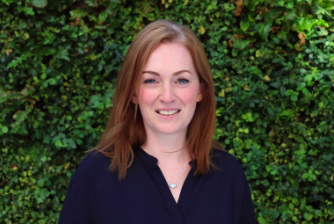
This blog was written by Carolyn Henry. Carolyn works as a Senior Programme Advisor for SCI Foundation, an organisation working to support governments to provide treatment to people affected by neglected tropical diseases. A trained NHS nurse, she decided to use her skills and work to support the Track and Trace efforts during the COVID-19 pandemic.
How do I feel to be a nurse, working outside of the NHS, during this pandemic? I feel guilty. I feel guilty about not being fully part of the NHS anymore like I have turned my back on an old friend who helped me become the person I am today. Watching colleagues struggle in the snippets we see on the news, who I do not know personally but who are part of my nursing tribe. It is difficult when I know I have skills that would help but I also have new loyalties in my full-time job at SCI Foundation as well as a young family. In a weird way it is refreshing to know I have never lost the empathy that drives me to put myself in danger to support others around me and the motivation to work extra hours to do what I can. This is what has driven me to re-join the NHS to do evenings and weekends at my local hospital and as part of the Track and Trace initiative. Somehow it doesn’t feel enough, and I don’t deserve the thanks that I get from people who know I am working in these jobs, but I hope it is helping.
The Track and Trace system is a good fit for me as SCI is a public health organisation and so working for an initiative that is designed to protect us from encountering infectious people and this horrible disease feels familiar. I also like talking, so spending hours on the phone is perfect! I hope people engage with it. It is hard to put trust into strangers and politicians, especially with concerns over data sharing, and believe it is for the greater good when all we want to do is protect the people who are closest to us. It’s natural to build a cocoon and settle into it, hoping it will all be over soon. Most of us overwhelmed by our own lockdown situations, probably still unaware of the full extent of the impact on our physical, mental and social health so asking people to think about the health of people they don’t know seems rude and obtrusive, but also profoundly necessary. We have seen what has happened in the first wave and I want to lower the possibility of there being a second.
In my day job at SCI, I am snapped back to that feeling of apprehension we had before
the first peak hit. I work with the Neglected Tropical Disease (NTDs) teams at the Ministries of Health in Sub Saharan Africa. Countries that are still waiting to see what the impact of Covid 19 will have on the populations there but have far fewer resources and much larger populations. It is not only the impact of Covid directly, but the indirect impact that is slowly creeping into realisation. What about people who cannot work but do not have a social welfare package to support them? What about those who are missing the humanitarian aid packages due to restrictions on work, shipping, production of medications? What about those who cannot wash their hands due to lack of water?
The enormity of the situation is dawning more each day. Even in our specialised field of NTDs, we are concerned about the impact of missing the drug treatments that will prevent long term suffering of the children we target. The mathematical models are being calculated, with initial results bringing the stark reality that it could take years to catch up if we miss treatments. And that is only a handful of diseases. What about the thousands of others, many of which are diseases of poverty? How with the health system scope with Covid 19 cases but also the longer-term issues that will develop if populations are not receiving the usual care? It is a lot to process. There is a lot to be done to support our global colleagues.
The contrast in doing these two jobs is bizarre, they are so similar in that they are part of public health programmes but are so different due to the level of resources available. I feel privileged to have the NHS, knowing if I am the one to get sick next that I will have a fully functioning health system to look after me. It is a contrast to many other people on different countries. It might be the guilt talking but I hope I am doing enough to contribute to this global pandemic. Not just for my nursing tribe, my family, my local community but also the global society, some of whom are going to struggle more than we can imagine, and the worst is yet to come.


